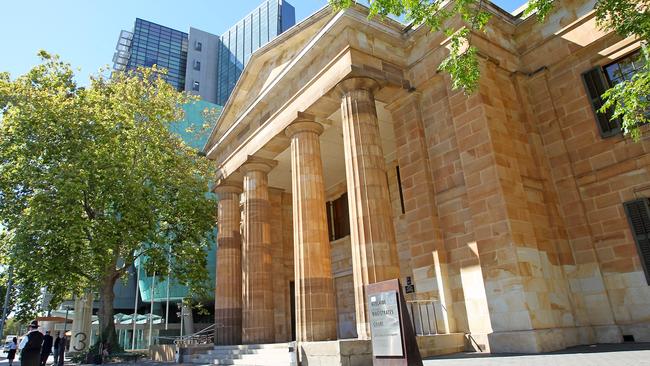More than 1400 criminal cases left in limbo under SA courts ‘efficiency’ measures, figures reveal
Moves to streamline the courts system have created a new logjam, leaving more than 1400 accused offenders in limbo — and their alleged victims still waiting for justice to be served.
- Analysis: That’s at least 1429 victims subjected to trauma and delay
- Justice ‘delayed and denied’: Critics slam court efficiency reforms
- ‘Broken system’: Delayed cases will be thrown out, warn magistrates
- ‘Efficient’ court system is slower than ever before
The victims of more than 1400 alleged murders, sexual assaults, armed robberies and other violent crimes remain in limbo, waiting for justice, due to so-called court efficiency reforms.
The Advertiser can reveal that just 185 of the state’s major criminal cases progressed to trial in the controversial system’s first year, down from 800 under the prior regime.
That leaves 1429 cases stuck in the Magistrates Court — with the spectre of a further 960 cases, previously dropped or thrown out due to delay, being relaid by police at any time.
The damning figures have infuriated victims rights advocates and lawyers, who say the promised review of the system must proceed immediately.
They fear the Courts Administration Authority and the State Government will seek to “fix” the problem by fast-tracking cases, even if they are not ready for trial.
Such a move, they warn, would only shift the backlog from one jurisdiction to another — and recreate the decades-long trial logjam that once plagued the District Court.
Commissioner for Victims’ Rights Bronwyn Killmier said the delays were causing further suffering and confusion for innocent people.
“The overall trauma of finding themselves in the broader criminal justice system has a huge impact on victims, regardless of the time it takes to get to court,” she said.
“Add delays to that mix, and victims experience heightened feelings of being excluded, alienated and not validated.
“Delays are detrimental to their recovery and to the provision of their best evidence, and this is made worse if they’re not kept informed or supported while the delays are occurring.”
The efficiency reforms, introduced in March 2018, were designed to streamline the Magistrates Court’s workload while easing the District Court’s decades-long backlog.

Under them, SA Police prosecutors retain conduct of cases until the Office of the Director of Public Prosecutions deem the evidence acceptable and takes over.
Drafted by former Attorney-General John Rau SC and supported by former DPP Adam Kimber SC, the reforms sparked problems immediately.
In their first week of operation, the reforms saw a rape case adjourned for 14 months.
Magistrates threatened to throw out delayed cases and engaged in angry exchanges with police prosecutors, prompting allegations of a “bullying culture”.
By January, just 18 cases had made it to trial.
At the time, Ms Chapman acknowledged those figures but said she was compiling “vast” and more comprehensive statistics — which have not been publicly released.
Figures obtained by The Advertiser show 2697 major indictable matters — allegations requiring a trial — were lodged with the Magistrates Court between March 2018 and March 2019.
Of those, 185 were committed for trial or sentencing, 960 were withdrawn, dismissed or downgraded and 1429 remained unfinalised.
Law Society of SA criminal law committee co-chair Craig Caldicott said the situation “needs to be rectified immediately”.
He said the Society had made submissions to the government’s review.
“It’s obvious changes will be made, however they’re clearly not happening quickly enough,” he said.
“Victims should have justice, defendants should have their day in court and matters should proceed expeditiously.”
Ms Chapman said the government had identified the “unintended problems” created by the system and that the review would be complete by the end of the year.
“It is erroneous to simply take a set of figures at the start of any given period and compare them to a set of figures at the end of another period,” she said.
“Many of the matters would have only recently commenced, and could not be expected to be ready for committal or any other form of finalisation.”
Stuck in the system
High-profile cases among the 1429 matters still progressing through the Magistrates Court have included …
(Name redacted)
An Irish national was the first person to face court under the reforms, accused of raping a woman at Parkside. He was bailed and his case adjourned for 14 months, exposing the flaws in the system. His case only proceeded to the District Court because he had it called on to plead not guilty - and charges were subsequently dropped by prosecutors.
Masoud Rad
Police asked the corruption case against this driving instructor be adjourned for 12 months to finalise the gathering of evidence. The court refusedand gave investigators six months. When Rad next appeared, police said they were not ready to proceed — and the court gave them a further six months. In July, Rad pleaded not guilty and was finallyordered to stand trial.

Aaron Ellis
Counsel for this suburban grandfather, accused of making bombs at his home, have made repeated attempts to negotiate about his case with the DPP — which has refused because, under the reforms, SA Police still have conduct of the case. The DPP has maintained that position despite appearing in court to protest Ellis’ bids for bail.

